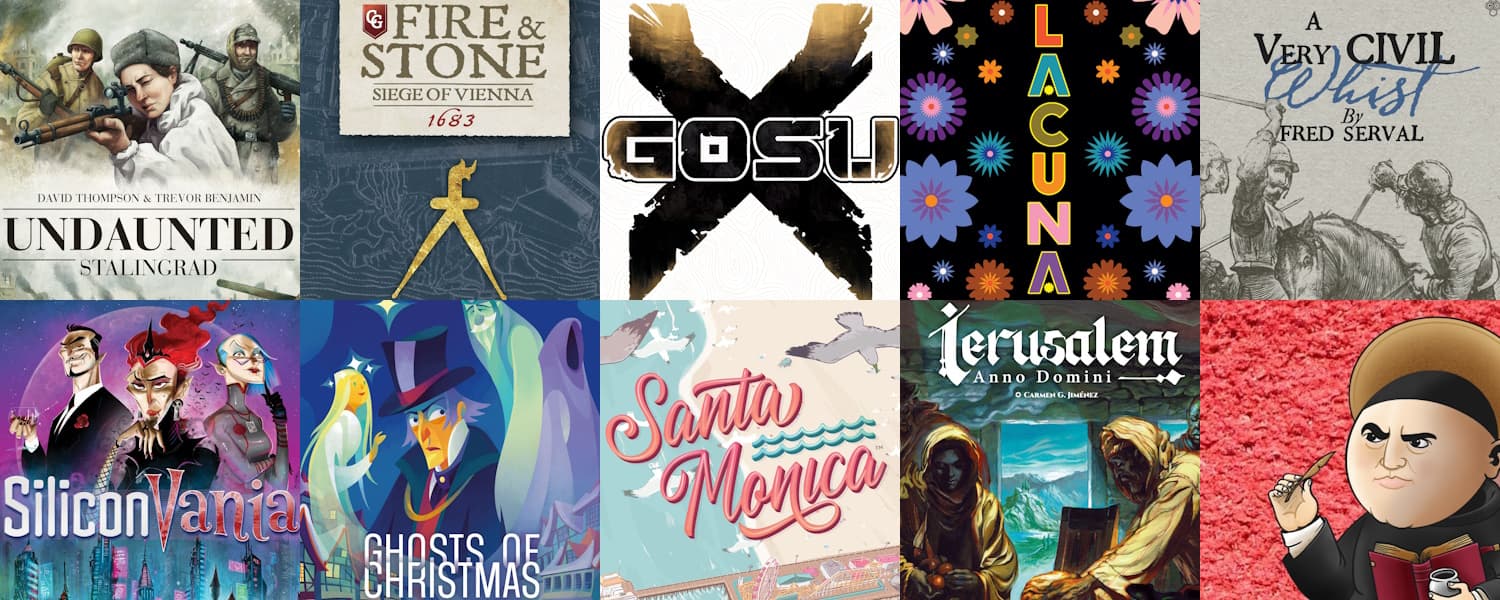I had my first multiplayer session with Wayfarers of the South Tigris over the holiday!
Wayfarers is one of the more recent games from Garphill, and I really like the general vibe of their stuff (Raiders of the North Sea, Architects of the West Kingdom, Hadrian’s Wall, etc.). I especially like this one for how it’s about exploration and science instead of the usual themes of production or acquisition or agriculture or citybuilding or yadda yadda yadda. It’s very much its own thing. The setting is the Golden Age of Islam in the Abbasid era, with players as “wayfarers” in ancient Baghdad, organizing caravans to explore the lands and the seas, staffing observatories to scour the heavens for discoveries, filling libraries with knowledge, and publishing your findings to win the game. It’s got tight theming around the concepts of travel, communication, and discovery in the context of simple worker placement and dice manipulation. And like all of Garphill’s games, it’s very smartly designed for “flow”, with a superlative interface baked into the board and components.
I’ve been playing a ton of it solitaire (love the snappiness of the bot!), but got frustrated with how the AI pushes itself across the finish line while I’m still messing around and figuring stuff out. How rude. Once again, I’m discovering how rarely multiplayer designs work for solitaire, even when they’re lightly interactive “Euros” with official solo modes. Basically, playing Warfarers of the South Tigris in solo mode is about trying to find a degenerate synergy before the time limit slams the game shut. This is fine as a kind of “puzzle challenge”, and you can ease up the pressure by playing the easier of the four AIs, but it still has the general feel of solving a puzzle rather than playing against an opponent.
So I enlisted a friend over the weekend, did my best to croak out a teach, and then we had a game. And it was wonderful! My friend did indeed slam the game shut on me, but she did it by following the rules (as opposed to a bot just drawing automa cards that let it magically do stuff), and she did it as a conscious decision when she could see my economic engine was revving up faster than hers. We ended at 53 to 51. I couldn’t have been happier about it. And not just because I won, but because she was able to wrap her head around it so well.
I’ll still mess around with it as a solitaire game, but it’s definitely staying in the collection for the ancient Arabic setting, the focus on science and discovery, and the overall Garphill-ness of it. One of these days, I’ll have to rank my Garphills. It won’t be easy.
